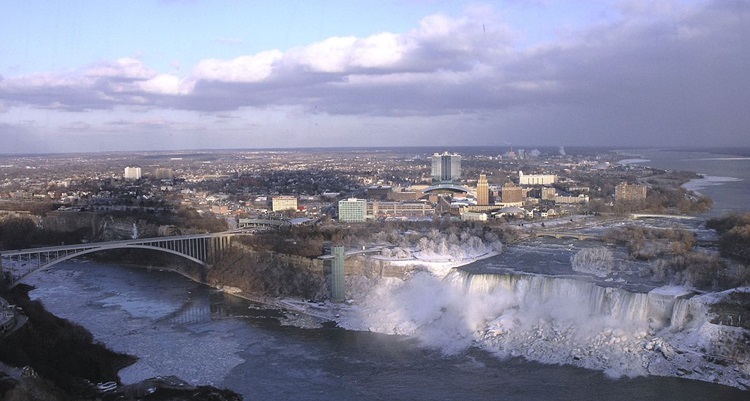An area around the Seneca Niagara Casino & Hotel which officials are calling the “Niagara Falls Tourism Target Zone,” will be receiving $3 million from New York State.
A one-to-two-mile radius around the casino owned and operated by the Seneca Nation of Indians is where local leaders reportedly want to attract business in order to generate revenue as well as to benefit various parts of the city located in Niagara County, New York.
Spectrum News reports that the $3 million, which comes from the state’s share of casino revenue payments received from the Seneca Nation, was money set aside from the 2016 and 2017 state budgets. The Niagara County Industrial Development Agency (IDA) will reportedly use the money to award grants to accepted projects.
The plan has a dual purpose, not to fully fund the projects but also to help attract investment to the area. Project proposals require a contribution of a minimum of 20 percent of the cost, according to the news agency.
State Sen. Rob Ortt (R-62), reportedly said that they are aware that after the past several years, casino revenues have been on the decline. Ortt, added, “And of course that ultimately results in less dollars going to the local shareholders, namely the city of Niagara Falls, as well as the hospital and the school district, because they get a percentage. So whatever the dollar figure is, the percentage always remains the same.”
Prior to this year, on Saturday the state would’ve received a sizeable revenue payment from the Seneca casino. However, in March this year, the Nation announced that it planned to stop the payments in keeping within the parameters of the compact signed in the summer of 2002 by then-Gov. George Pataki and Seneca President Cyrus M. Schindler Jr.
The Seneca said at the time that the language of the three-casino deal, which according to the tribe calls for a quarter of slot machine revenues to be shared with host communities in Niagara Falls, Buffalo, and Salamanca, is clear and states that state revenue sharing payments can be stopped after 14 years. This year the Senecas entered the 15th year of the compact and over the years have paid the state and local governments nearly $1.5 billion.
Of the three host communities, Niagara Falls is expected to be hit hardest, as the city receives upwards of $20 million in yearly revenue sharing payments from the Seneca’s gaming property at 310 Fourth Street in Niagara Falls.
The news agency reports that the Seneca Nation is supportive of efforts aimed at attracting tourism and private investment to the city of Niagara Falls and hopes that others will come forward to further the momentum it has been a part of.



